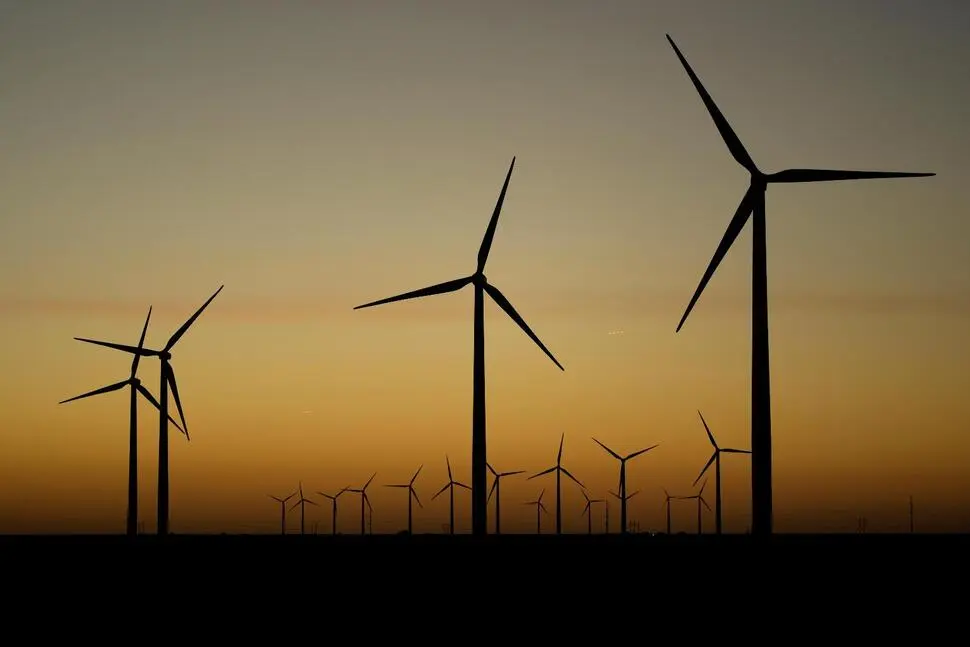Senate Republican Tax Proposal Sparks Outcry from Renewable Energy Advocates
Clean energy advocates warn that a new GOP-backed tax bill in the U.S. Senate could severely undercut the growth of wind and solar power, threatening climate goals and jeopardizing thousands of green jobs nationwide.
A newly introduced tax proposal by Senate Republicans is drawing intense criticism from environmentalists, clean energy businesses, and climate policy experts, who argue that the bill could significantly undermine the U. S. renewable energy industry — particularly the rapidly expanding wind and solar sectors.
The proposal, embedded in a broader package of tax code revisions championed by Republican lawmakers, aims to scale back or eliminate several key federal tax credits that have fueled investment in renewable energy infrastructure over the past decade. Among the targets: the Production Tax Credit (PTC) for wind power, the Investment Tax Credit (ITC) for solar installations, and new incentives enacted under the Inflation Reduction Act (IRA) of 2022. What’s in the Bill?
The bill, formally known as the ‘Tax Code Modernization and Fairness Act,’ is being led by Senator Brent Colton (R-TX) and backed by a coalition of GOP lawmakers who argue that federal subsidies for clean energy have distorted the energy market and imposed unfair burdens on taxpayers.
The bill proposes to:
- Phase out the PTC and ITC over the next two years. - Repeal newly established transferability and direct pay provisions included in the IRA. - Cut federal support for grid modernization projects connected to renewable energy expansion.
- Reinstate full tax incentives for fossil fuel exploration and development. Supporters of the bill frame it as a move toward energy ‘neutrality,’ claiming that government should not ‘pick winners and losers’ in the energy sector. “American taxpayers should not be footing the bill for industries that can’t stand on their own,” said Sen.
Colton during a press briefing. “This bill restores balance and fairness to our tax system and ensures all energy producers compete on equal footing. ”
Renewable Advocates Push Back
But advocates for wind and solar energy say the GOP plan could devastate an industry that has created hundreds of thousands of jobs and is central to America’s effort to combat climate change.
“Stripping away these tax incentives would be a catastrophic step backward,” said Abigail Ross Hopper, president and CEO of the Solar Energy Industries Association (SEIA). “This is not just an attack on clean energy — it’s an attack on American jobs, innovation, and climate resilience. ”
Clean energy companies warn that repealing tax credits would immediately reduce investment, stall planned projects, and result in widespread job losses.
According to an analysis by the American Clean Power Association, the bill could:
- Halt more than $60 billion in planned renewable energy investments. - Eliminate up to 100,000 jobs in the clean energy sector by 2026. - Slow or cancel nearly 40 gigawatts of wind and solar projects currently in development.
Impact on Climate Goals
Climate scientists and environmental groups argue that the rollback of renewable energy incentives could imperil the United States’ ability to meet its emissions reduction targets under the Paris Agreement. President Biden’s goal of achieving 100% carbon-free electricity by 2035 depends heavily on rapid expansion of wind and solar power. “This bill, if passed, will lock in fossil fuel dependency for another generation,” warned Leah Mullen, a climate policy expert at the Brookings Institution.
“It’s a direct contradiction to the progress we’ve made under the Inflation Reduction Act and a surrender to short-term interests. ”
While the bill does not directly increase fossil fuel subsidies, the reintroduction of full tax deductions for oil and gas drilling — combined with the elimination of renewable support — would tilt the scales back toward carbon-intensive energy. Regional and Economic Consequences
Many states that have benefited from the green energy boom could be especially hard hit.
Texas, ironically home to the bill’s lead sponsor, is the nation’s top producer of wind energy and among the fastest-growing states for solar installations. Clean energy projects have brought billions in investment and tax revenue to rural counties across the state. “If Senator Colton’s bill becomes law, rural Texas will be among the first to suffer,” said Mayor Linda Garza of Amarillo, where a 400 MW wind project is currently underway.
“These projects have brought jobs, schools, and new hope to communities that have long been left behind. ”
Other states like California, Iowa, and North Carolina also stand to lose significant economic activity if clean energy growth slows. Manufacturers of turbines, solar panels, batteries, and transmission equipment — many of which operate in the American Midwest and South — are lobbying aggressively against the bill.
Political Motives and 2024 Dynamics
Critics of the bill say the move is not about fiscal conservatism, but political posturing ahead of the 2024 elections. Several GOP lawmakers are aligning themselves with pro-fossil fuel groups and attempting to paint climate policy as an elite-driven agenda that harms working-class Americans. “This is red meat for donors in the oil and gas sector,” said Rep.
Mark Hanley (D-CO). “It’s not serious legislation. It’s a message bill — and the message is, ‘we’re siding with Exxon, not the environment.
’”
Meanwhile, Democrats have vowed to oppose the bill in the Senate and kill it outright in the House if necessary. President Biden has already indicated he would veto any legislation that undermines the clean energy tax framework. Public Opinion and Industry Reaction
Polling suggests that public support for renewable energy remains strong.
A recent Pew Research survey found that 74% of Americans support expanding wind and solar infrastructure, including 56% of Republican voters. In response to the bill, dozens of industry groups and environmental nonprofits have launched an aggressive lobbying and public awareness campaign. Full-page ads in major newspapers, social media blitzes, and coalition letters to Congress are part of the coordinated response.
Companies like Tesla, NextEra Energy, and First Solar have also issued statements opposing the bill, calling it economically regressive and environmentally destructive. “We can’t build the economy of the future by clinging to the fuels of the past,” said a statement from the Clean Energy Business Network. “This bill is out of step with where the market — and the public — is headed.
”
A Fragile Legislative Path
Though introduced with fanfare, the bill faces an uncertain future. While Republicans may be able to pass it out of committee in the Senate, it’s unlikely to reach the 60 votes required to overcome a Democratic filibuster. In the House, where Republicans hold a slim majority, a few moderate members have expressed concern over the proposal’s potential impact on jobs and rural investment.
“It’s not just about climate,” said Rep. Rachel Lattimer (R-PA). “It’s about whether we want to lead the world in energy innovation or fall behind China and Europe.
”
Conclusion: A High-Stakes Policy Clash
The Senate GOP’s proposed rollback of renewable energy tax credits has set the stage for a fierce policy battle in Washington — one that pits climate science against fossil fuel interests, rural economic development against partisan ideology, and the future of energy innovation against the pull of the past. As lawmakers, industry leaders, and advocates mobilize, the outcome of this legislative fight could shape the direction of U. S.
climate policy for years to come. Whether the bill gains traction or collapses under the weight of opposition, it has already ignited a national debate about what kind of energy future America should pursue.




